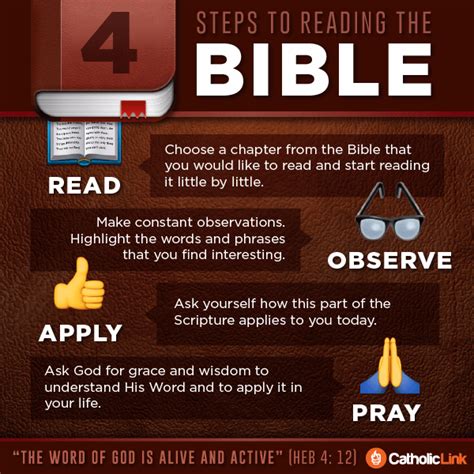How to Read the Bible: A Guide for Beginners and Experienced Readers
The Bible, a collection of ancient texts spanning centuries, can feel daunting to approach. Whether you're a newcomer seeking spiritual guidance or a seasoned reader looking to deepen your understanding, this guide offers practical tips on how to effectively and meaningfully read the Bible. This isn't about forcing interpretation, but fostering a genuine connection with the text.
Understanding the Bible's Structure
Before diving in, understanding the Bible's structure is crucial. It's not a single, linear narrative but a library of books, divided into two main sections:
- The Old Testament: This section tells the story of God's covenant with his people, from creation to the arrival of Jesus. It contains historical accounts, poetry, prophecy, and law.
- The New Testament: This section focuses on the life, ministry, death, and resurrection of Jesus Christ, as well as the early development of the Christian church. It contains Gospels (accounts of Jesus' life), letters (epistles) from apostles, and the book of Revelation.
Knowing which Testament and even which genre you're reading (e.g., historical narrative, poetry, law) will significantly impact your interpretation.
Effective Bible Reading Strategies
Choosing the right method for you is key. There's no single "best" approach. Experiment to find what works best for your learning style and spiritual goals. Here are a few popular methods:
1. Chronological Reading
Reading the Bible chronologically provides a more linear narrative, especially in the Old Testament. Many chronological Bibles are available, or you can use a reading plan that guides you through the books in historical order. This method helps build a stronger understanding of the overall biblical story.
2. Topical Reading
Focus on specific themes or subjects. For example, you could read passages related to faith, love, forgiveness, or prayer. This is great for in-depth study of particular areas of interest. Concordances and topical Bibles are valuable resources here.
3. Devotional Reading
This approach focuses on shorter passages, often accompanied by reflection and prayer. Daily devotional books offer structured readings and meditations, making it an accessible way to engage with scripture daily.
4. Lectio Divina (Divine Reading)
This ancient monastic practice involves four steps: lectio (reading), meditatio (meditation), oratio (prayer), and contemplatio (contemplation). It's a slower, more contemplative approach emphasizing personal reflection and spiritual growth.
Essential Tools for Bible Study
Several resources can enhance your Bible reading experience:
- Study Bibles: These Bibles include notes, cross-references, and commentaries to help you understand the text more deeply.
- Concordances: These indexes list every word in the Bible and show where it appears, allowing you to trace themes and concepts.
- Commentaries: These offer detailed explanations and interpretations of biblical passages, written by scholars and theologians.
- Dictionaries and Encyclopedias: These provide definitions and background information on biblical terms, people, and places.
Interpreting Scripture Responsibly
Remember, interpreting scripture is a complex undertaking. To avoid misinterpretations, consider these guidelines:
- Pray for guidance: Ask God for wisdom and understanding as you read.
- Consider the historical and cultural context: Understand the time period and culture in which the text was written.
- Read passages in their entirety: Avoid taking verses out of context.
- Compare different translations: Different translations can offer varied perspectives on the same passage.
- Seek community: Discuss your readings with others to gain different perspectives and deepen your understanding.
Finding Your Reading Rhythm
Don't feel pressured to read the entire Bible in one sitting or even in a short period. Consistency is more important than speed. Start with small, manageable chunks and gradually increase your reading time as you become more comfortable. Find a quiet space where you can focus and allow yourself to truly engage with the text. The goal is not just to read words, but to encounter the living Word.
By employing these strategies and resources, you'll embark on a rewarding journey of spiritual growth and discovery, unlocking the timeless wisdom and profound truths contained within the pages of the Bible.
